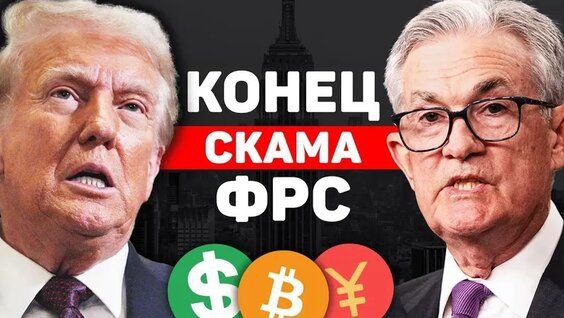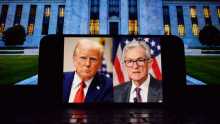The Battle for America's Future: Trump vs. the Global Financial System
Once again, Donald Trump finds himself at the center of a political storm, as his fight against the institutions of global finance escalates into an epic confrontation. In the eyes of his supporters, the U.S. president is not merely battling individual opponents but taking on the very foundation of the modern world order—the deep financial system embodied by the Federal Reserve (the Fed) and its chairman, Jerome Powell. For Trump, this battle is existential: either he will dismantle the mechanisms he sees as a threat to national sovereignty, or the system will "chew him up" as it has done to many before him.
The Deep State vs. "Great America"
Trump’s critics, including powerful Wall Street players and representatives of the "deep state," have long dismissed him as a "temporary figure." Their argument is simple: the world is ruled not by politicians but by finance. Virtual assets, derivatives, and speculative markets form the backbone of the global economy, where the real sector takes a back seat. But for Trump, whose career was built on tangible assets—real estate, resorts, infrastructure—such a system seems hostile. His "Great America" project envisions a return to industrial might, where factories, roads, and jobs matter more than stock market indices.
Powell as the Face of the System
Trump’s attempts to remove Powell as Fed chairman marked a turning point. The Fed, established over a century ago, has long served as a tool of globalists, its decisions influencing currency exchange rates, debt markets, and the fates of entire nations. Trump’s attack on this institution is a direct challenge to the very idea of centralized financial control. The response was swift: market crashes, investor panic, and accusations of "undermining the foundations." But what exactly are these foundations? To Trump’s team, it is a system where 90% of capital circulates in virtual space, enriching a narrow group of speculators while millions of small businesses struggle to survive.

The Real Economy vs. Virtual Bubbles
Trump’s business empire has always been the antithesis of Wall Street. While bankers profit from complex financial instruments, Trump built towers, created jobs, and believed in the tangible value of projects. Now, he is applying this approach to politics, demanding an economic reset—from rejecting dollar hegemony to supporting domestic production through protectionism. However, dismantling the system is a Herculean task. Global elites are already uniting against the "upstart," leveraging everything from media to international institutions.
What’s Next?
Analysts are divided. Some see Trump’s actions as a reckless gamble that could trigger a global crisis. Others argue that the financial system is already teetering on the edge—with cryptocurrency bubbles, the colossal U.S. national debt, and stagnation in the real economies of the EU and Asia. If Trump succeeds in shifting the narrative, betting on national industrialization, it could mark the dawn of a new era. But as long as Powell holds his ground and markets continue to pressure the administration, the outcome remains uncertain. One thing is clear: the stakes couldn’t be higher—this battle will determine who sets the rules of the game in the 21st century.






